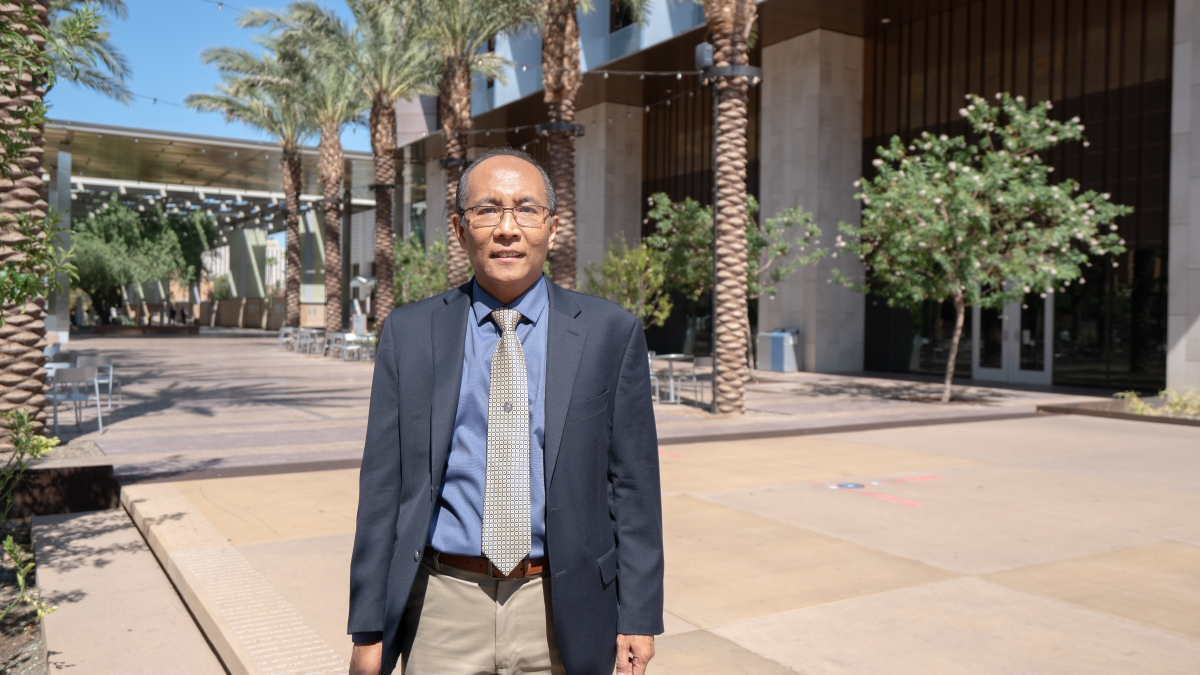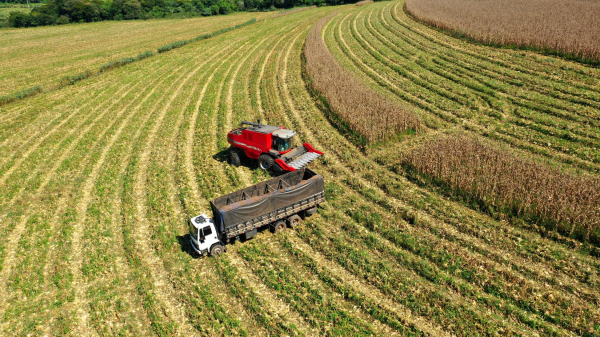ASU professor heads north as Fulbright Canada Research Chair

Soe Myint, professor in the School of Geographical Sciences and Urban Planning, was selected as the Fulbright Canada Research Chair in Environmental Studies.
An expert in remote sensing and GIScience, Soe Myint has been selected as the Fulbright Canada Research Chair in Environmental Studies to investigate concerns such as climate, environment and land-use and land-cover change. Myint, a professor in Arizona State University's School of Geographical Sciences and Urban Planning, has already headed to the University of Regina in Saskatchewan, Canada, to start his position that will last through the end of 2019.
While under the umbrella of environmental studies, Myint was selected for the Fulbright Canada Research Chair Award in Water, Environment, and Clean Energy.
“I will be examining ground and surface water changes in central and western Canada between 2002 and 2017,” Myint said.
“I aim to try to understand if and how environmental degradation, social and economic changes and land-use dynamics influence these changes.”
Myint will focus his research on the central and western regions of Canada, including British Columbia, Alberta, Saskatchewan, Manitoba, Ontario and Quebec. This extensive region includes major agriculture areas (larger than 6,000,000 acres per province) that will be used to examine land-use and land-cover change, environmental degradation and socioeconomic status in connection to ground and surface water change over time. These provinces are considered to be the most intensive agriculture water-use regions in Canada and have significantly large agricultural areas in comparison to other provinces in Canada.
To complete these efforts, Myint will utilize a variety of data and tools, including satellite images and geospatial information technologies. Among these are the gravimetry data from the Gravity Recovery and Climate Experiment twin satellites launched in 2002, which allow estimation of terrestrial water storage changes across the globe to determine ground and surface water changes in central and western Canada.
“I hope I will not only be able to contribute something useful for Canada’s future food security and economy in response to drought, climate change, variation and extremes that are linked to water use and availability, but also demonstrate the tremendous potential of spatiotemporal modeling research on key environmental issues," Myint said.
Myint will be in good hands as he engages in this work at the University of Regina, which is home to several relevant research centers, including the Institute for Energy, Environment and Sustainable Communities; the Institute for Environmental Change and Society; the Prairie Adaptation Research Collaborative; and the Centre for the Study of Science and Innovation Policy.
More Environment and sustainability

Earth Day celebrations focus on making our planet a priority
On April 22, Earth Day is celebrated across the country and in nearly 193 countries around the world. Arizona State University…

ASU scientist studies how bans, regulations on food technology affect consumer acceptance, perceptions
How do people process scientific developments with outside influences, warnings, biases and others’ opinions filtering in? That…

ASU team's research leads to new law protecting mobile-home dwellers
Arizona Gov. Katie Hobbs signed a law earlier this month that guarantees mobile-home owners’ right to install cooling measures,…